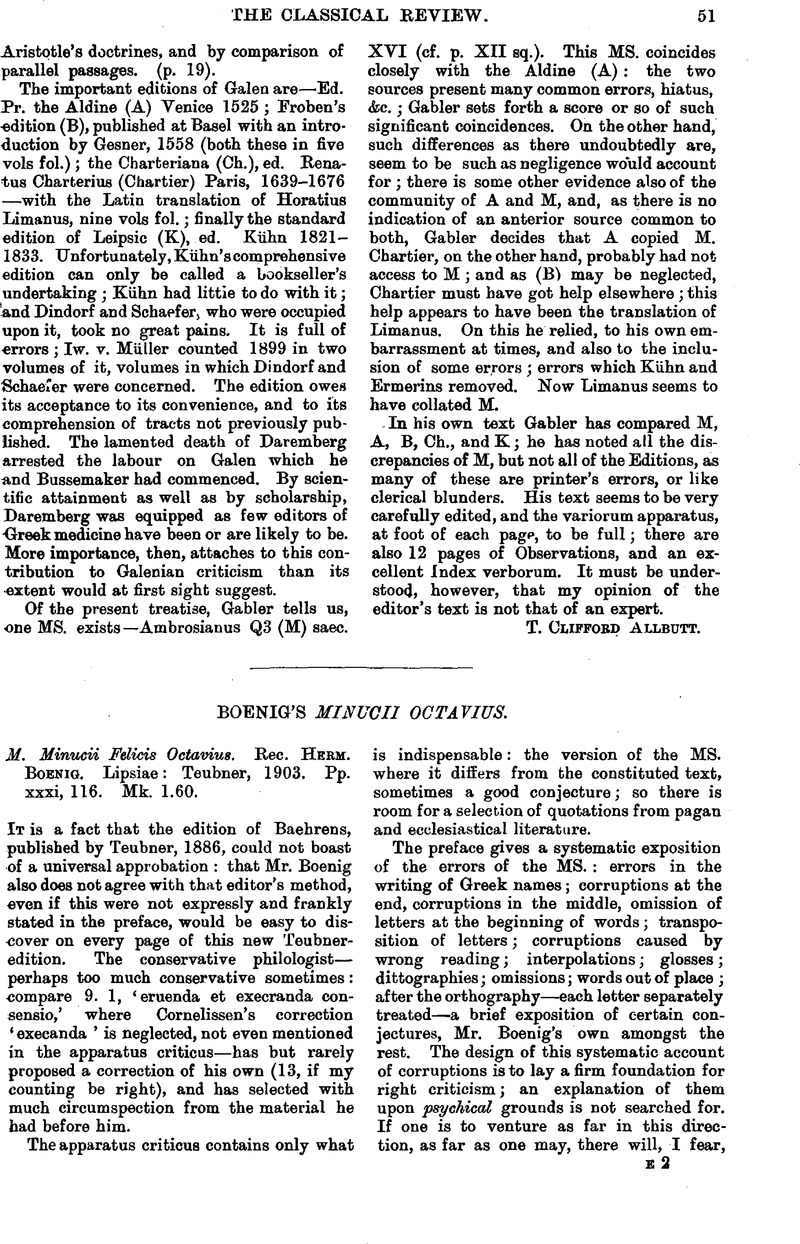No CrossRef data available.
Article contents
Boenig's Minucii Octavius - M. Minucii Felicis Octavius. Rec. Herm. Boenig. Lipsiae: Teubner, 1903. Pp. xxxi, 116. Mk. 1.60.
Published online by Cambridge University Press: 27 October 2009
Abstract

- Type
- Reviews
- Information
- Copyright
- Copyright © The Classical Association 1904
References
page 52 note 1 The same mistake was probably committed in 10. 4, where the utter powerlessness of the god is derided: ‘ cuius adeo nulla vis nec potestas est, ut sit Romanis nominibus cum sua sibi natione captivus.’ The version of the editio princeps ‘hominibus’ seems to be preferable to ‘numinibus’ of Mr. B. and other critics. Compare Cic. de Divin. ii. 2. 5 Romanis hominibus, Liv. v. 51. 3.
page 54 note 1 The supposed construction (in voce ‘ respondere ’) is equally uncertain in 13. 4 ‘Simonides cum de eo, quid et quales arbitraretur deos, ab Hierone quaereretur, primo deliberationi diem petiit, postridie biduum prorogavit, mox alterum tantum admonitus adiunxit. postremo cum causas tantae morae tyrannus inquireret, respondit ille, quod sibi, quanto inquisitio tardior pergeret, tanto veritas fieret obscurior, ’ as there may be a brachylogy, and even improbable if compared with Cicero de Nat. Deor. i. § 60: ‘ cum saepius duplicaret numerum dierum admiransque Hiero requireret, cur ita faceret: Quia, quanto, inquit, diutius considero, tanta mihi res videtur obscurior.’ So there remain as indubitable examples only ‘ paenitere quod ’ and ‘ nihil prodest quod. ’




